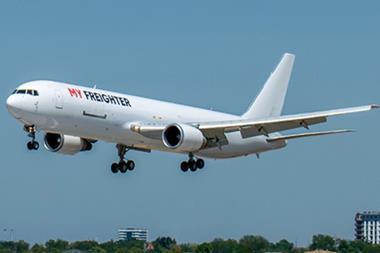Airlines in the Asia Pacific region saw cargo traffic decline by 21.1% year on year in March as the effects of the coronavirus began to bite.
Statistics from the Association of Asia Pacific Airlines (AAPA) show that while demand dropped in March by more than 20% on a year earlier, capacity was down by the larger amount of 31.1%, resulting in load factors improving by 9.1 percentage points to 71.9% for the month.
In the first quarter demand was 10% down on a year ago.
The AAPA said that cargo demand had held up "relatively well" compared with a 38% decline in passenger numbers.
It said that cargo demand "was impacted by supply chain disruptions and weakening business and consumer confidence in light of increasing uncertainty and rising unemployment in major economies across the world".
Subhas Menon, AAPA director general, said: "There is great uncertainty as to how long the global slump will persist. Businesses and consumers are likely to remain risk averse until more is known about the nature and duration of the Covid-19 pandemic spread.
"Governments would persist in their efforts to suppress the spread of the virus through the imposition of strict measures on social distancing, movement restrictions and border controls.
"The progress of the pandemic varies in each country. The eventual recovery in travel demand is expected to be slow and sporadic. The industry cannot stay grounded for too long as it would be to the detriment of not only aviation but also global trade, tourism and the wider economy.
"Governments need to come together to agree on a harmonised mitigation framework, that is supported by public health professionals and all industry stakeholders, to restart aviation without too much delay.
Menon concluded: "The airline industry plays a vital role in times of crisis and in its recovery. Aviation is a vital conduit for economic, tourism and social development. AAPA appeals to governments to actively progress discussions to restart aviation in a timely manner."















